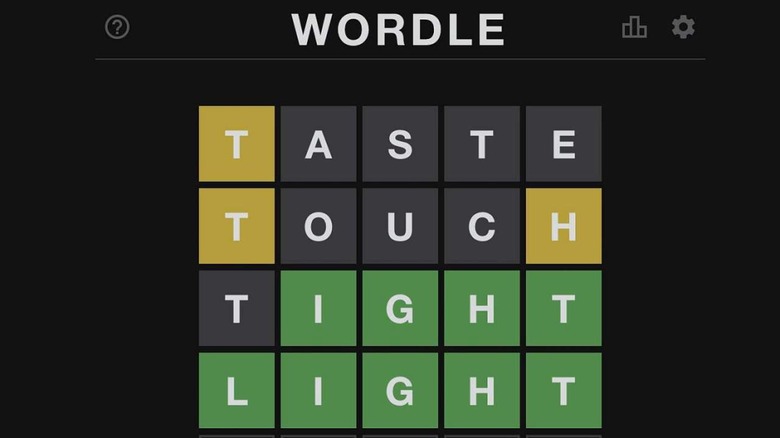Wordle Just Got Bought: Is A Paywall Next?
The word game juggernaut that is Wordle has been purchased by the New York Times (NYT) for an undisclosed amount of money, with both the news company and Wordle's creator, Josh Wardle, announcing the acquisition. Wardle cites NYT games as a big inspiration for Wordle and says that it will be running things moving forward. What exactly this means for the popular free game's future is uncertain, but Wardle states that "it will be free to play for everyone" once it's transferred over to the NYT website.
For its part, the NYT is making the same claim – that Wordle will be free to play for both new and existing players, and there won't be any changes made to the gameplay itself. So the "six guesses to figure out a five-letter word" structure will remain intact. To further help with the change, Wardle says that he's also working with the NYT in order to preserve players' wins and streaks.
Will it stay the same, though?
Of Wordle's millions of daily players, many are already expressing concern over the announcement in both Wardle's and the NYT's Twitter posts. The primary fear is the extremely popular game that's completely free to play (i.e., no advertisements or purchase options) will start seeing monetization.
There's no direct evidence of this as of yet, though the wording of the NYT announcement does leave things somewhat ambiguous. While the announcement states that "At the time it moves to The New York Times, Wordle will be free to play," it also says that Wordle will be added to the New York Times Games portfolio.
In that same announcement, the NYT points out that it achieved one million subscriptions for Games in December of 2021. It's also stated that it wants to become an "essential subscription," which does seem to imply a requirement for payment.
Again, it's not explicitly stated that the NYT will be monetizing Wordle. Wardle himself said in his statement that he believes the company treats its players well and that they both share similar values along those lines. However, the phrasing does leave things open to interpretation. For now, the only thing we can do is wait and see if Wordle remains free or ends up behind a paywall as part of New York Times Games.

